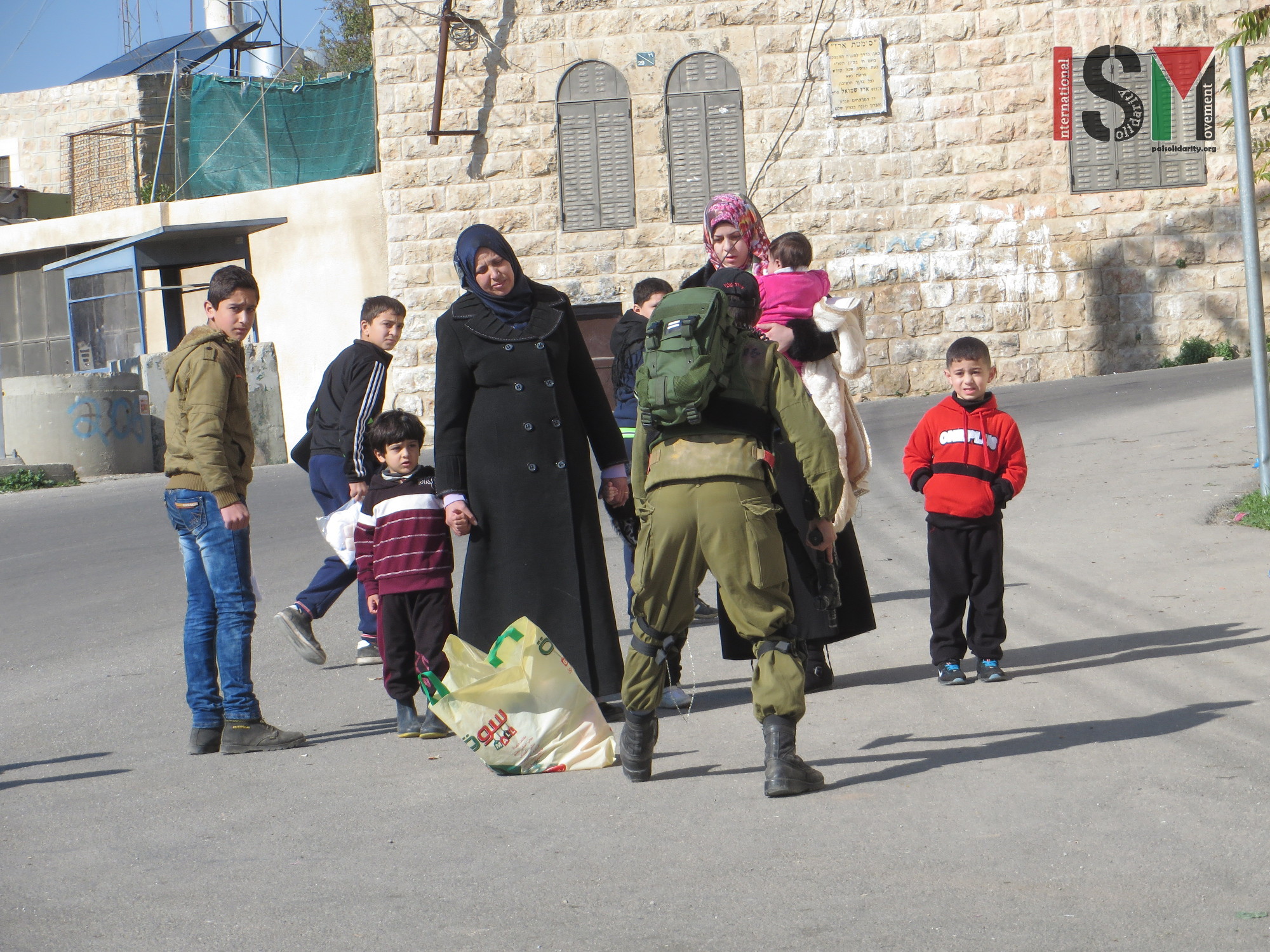Tag: Hebron
-
Israeli forces using skunk-water as a form of collective punishment
30th December, 2015 | International Solidarity Movement, al Khalil team | Al Khalil, occupied Palestine On 30th December 2015, Israeli forces showered the Abu Sneineh neighbourhood in occupied al-Khalil (Hebron) in tear gas and shot skunk water at family homes and a kindergarten. When students at the schools in the Abu Sneineh neighbourhood were leaving…
-
Yet another day of body searches and intimidation in Hebron
21st December, 2015 | International Solidarity Movement, al Khalil team | Al Khalil, occupied Palestine Children and teachers of Ziad Jaber elementary school in occupied al-Khalil (Hebron) are daily subjected to body searches and intimidation by armed Israeli soldiers at checkpoints, as they walk to school. International ISM activists monitored a checkpoint right in front…
-
Israeli forces injure 3 Palestinians before shooting tear gas at bypassers in the market of Hebron
December 20th, 2015 | International Solidarity Movement, al Khalil team | Al Khalil, occupied Palestine Sunday, 20th December 2015, Israeli forces shot and injured three Palestinians at Shuhada checkpoint in occupied al-Khalil (Hebron), before arbitrarily firing towards civilians and journalists in the area. Israeli forces shot a girl in the head with live ammunition. A…



